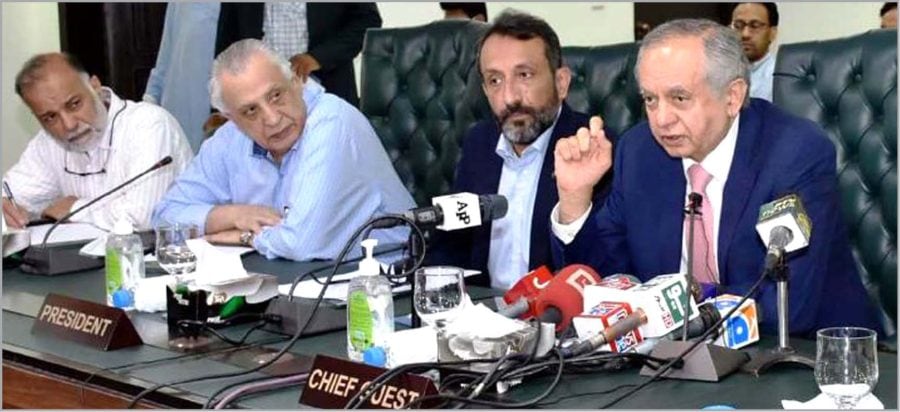Staff Reporter Lahore
Advisor to the Prime Minister on Commerce and Investment, Abdul Razak Dawood Monday said that Pakistan will be signing a transit trade agreement with Afghanistan soon to access markets of Uzbeki-stan and beyond.
“ Uzbekistan is important with respect to trade and will be a big economy to deal with,” the adviser said while visiting the Lahore Chamber of Commerce and Industry (LCCI) and briefing them on the recent visit of Prime Minister Imran Khan and its eco-nomic benefits.
The goods will reach Uzbekistan from Karachi in five days, Abdul Razak Dawood said and added that measures are being taken to improve trade ties be-tween the two countries as they have signed 71 trade agreements during the recent visit.
He said that efforts are also underway to begin spe-cial flights between Pakistan and Uzbekistan. The adviser further shared that they are giving exemp-tions on the import of raw materials for industrial purposes in order to promote industrialisation and local production. “We are further reviewing the controversial section 203 of the Federal Board of Revenue (FBR),” he said.
He lauded the efforts of the exporters for achieving the highest ever exports despite very difficult condi-tions at home and abroad due to the coronavirus pandemic and related lockdowns. He said that Paki-stan did very well as compared to regional coun-tries.
He also apprised the industrialists of visit to Uz-bekistan and encouraged them to focus on the Cen-tral Asian market.
He said that under the Ministry of Commerce’s Silk Route Reconnect Policy, a transit trade agreement has been signed with Uzbekistan and a preferential trade agreement (PTA) will soon be signed.
Pakistan and Uzbekistan on Wednesday last agreed to finalise bilateral Preferential Trade Agreement (PTA) within three months to further boost bilateral trade volume. At the 6th meeting of the Uzbek-Pakistani Intergovernmental Commission on Trade-Economic and Scientific-Technical Cooperation (IGC) held in Tashkent, both sides agreed to form joint working groups on agriculture, information technology, education and mineral sectors to boost cooperation.










